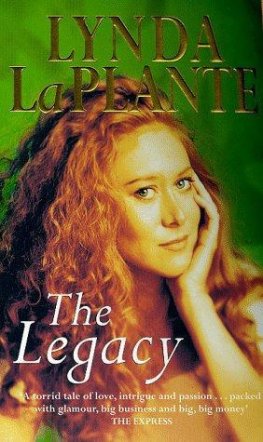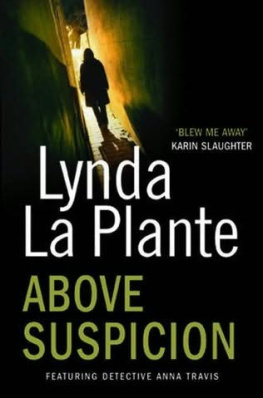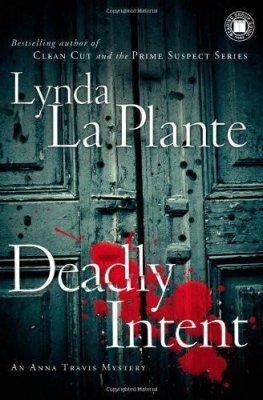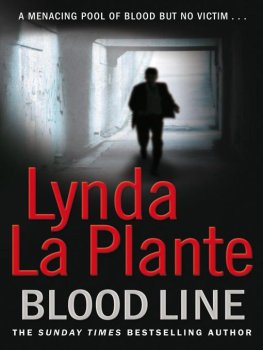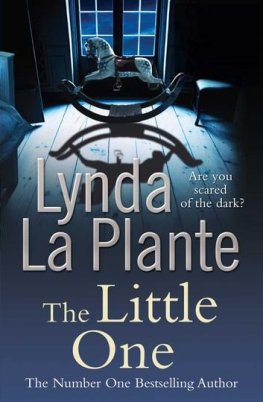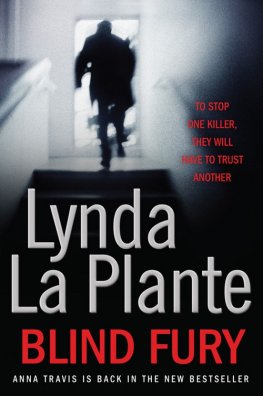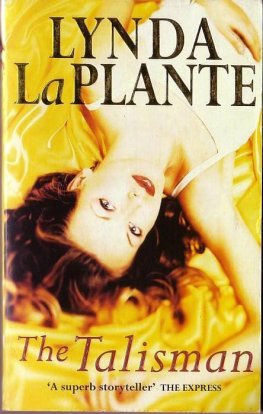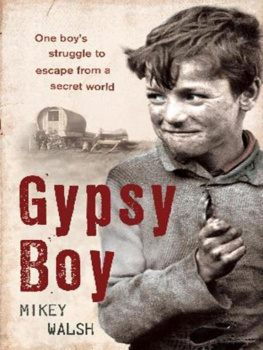Lynda La Plante - The Legacy
Here you can read online Lynda La Plante - The Legacy full text of the book (entire story) in english for free. Download pdf and epub, get meaning, cover and reviews about this ebook. genre: Prose. Description of the work, (preface) as well as reviews are available. Best literature library LitArk.com created for fans of good reading and offers a wide selection of genres:
Romance novel
Science fiction
Adventure
Detective
Science
History
Home and family
Prose
Art
Politics
Computer
Non-fiction
Religion
Business
Children
Humor
Choose a favorite category and find really read worthwhile books. Enjoy immersion in the world of imagination, feel the emotions of the characters or learn something new for yourself, make an fascinating discovery.
- Book:The Legacy
- Author:
- Genre:
- Rating:5 / 5
- Favourites:Add to favourites
- Your mark:
- 100
- 1
- 2
- 3
- 4
- 5
The Legacy: summary, description and annotation
We offer to read an annotation, description, summary or preface (depends on what the author of the book "The Legacy" wrote himself). If you haven't found the necessary information about the book — write in the comments, we will try to find it.
The Legacy — read online for free the complete book (whole text) full work
Below is the text of the book, divided by pages. System saving the place of the last page read, allows you to conveniently read the book "The Legacy" online for free, without having to search again every time where you left off. Put a bookmark, and you can go to the page where you finished reading at any time.
Font size:
Interval:
Bookmark:
Lynda La Plante
The Legacy
Legacy 1
Prologue
Evelyne Jones sat at the kitchen table, the tip of her tongue pressed to her top lip as she concentrated on her handwriting. The house was silent, everyone asleep, and the kitchen was lit only by firelight. She wore an old shirt of her Das, and her long, skinny body was hunched over her work, her bare feet one on top of the other for warmth. Evelynes waist-length thick red hair was braided into a single plait down her back. Small wisps of curls clung to her forehead.
She yawned, stretching her arms above her head like a ballet dancer. Her thin frame, without an ounce of fat, was more like a young boys, and she was so tall, too tall for her age, head and shoulders above the rest of the girls in her class at school.
Hugh Jones, Evelynes father, caught his breath. She hadnt heard him come down the stairs to stand in the darkness, watching her. Everyone said that poor Evie Jones was no beauty so tall and thin her best feature was her wondrous hair. Some had even said it should be ironed, it was like the fan of a concertina. But at that moment Hugh thought she was the most exquisite creature he had ever set eyes on; he couldnt move, she held him mesmerized by some magic.
Slowly Evelyne became aware of him, and she turned to give him the sweetest of smiles.
Oh, Da, I love the family so, I love you all so much. Ay, well, that may be right, but you should be abed get yourself up, gel, now.
She brushed past him and gave him a tickle in the ribs, and he caught her to him, held her tight. He could smell the soap on her face and neck, and kissed the white, white skin. His voice was muffled with emotion. We all love you, too, gel, with all our hearts. Slipping past him she went up to bed, but he remained standing, unable to move. His Evie, his darling child, had been untouchable for that single moment. He was so used to seeing her in her worn clothes, doing the household chores. She was just a little girl, like the other girls in the village, but that moment struck like a warning bell, telling him that Evelyne, his daughter, was different.
BOOK ONE
Chapter 1
Doris Evans looked through the compositions handed in by her class. They were, as usual, grubby, the cheap exercise books food-stained and dog-eared. Coal dust from the small hands made the texture of the paper gritty. Page after page of misspelt, blotched, childish dreams. Their subject was, Choose a character from history, one you would like to have been.
The stories were similar in many cases too similar and Doris suspected that Lizzie-Ann Griffiths had been making herself a few halfpennies. Ninety per cent of the girls from her class fancied being Gaiety Girls, but they all spelt it Gayity. Doris sighed and corrected the scrawled lines. So much for history.
Doris saved Evelyne Jones compositions until the very last. Neat, meticulous handwriting on clean, flat pages the girl kept her notebook in a brown paper bag. At the top of the page Evelyne had printed the date, February 10th 1909, and the title: I am Christina Georgina Rossetti. Then in the same perfect handwriting the composition followed. The young girl discussed her love for her brothers, Dante Gabriel and William Michael, but what was so remarkable was that Evelyne had interwoven her feelings for her own brothers around her fictional self. She compared her own familys education to that of the Rossettis. It caught the teachers imagination. Doris was taken aback at the depth of feeling and Evelynes sophisticated use of the English language. She wrote about what it was like to be part of the Pre-Raphaelite movement. Evelyne was ten years old.
Doris was so fascinated she didnt even correct the spelling. She turned page after page, until the final paragraph moved her to tears. Evelyne had copied down two lines from one of Christina Rossettis poems: Remember me when I am gone away, Gone far away into the silent land, followed by a few lines in which she said that, for many in her village, there would be no distant land, just the blackness of the mine, the blackness of death hanging over them. The blackness never stopped the laughter, the love, but so many lives were lost, and too easily forgotten.
From the schoolroom window, Doris stared down into the village. It was growing dark, and the few streetlights twinkled. In the half-light Doris could see the groups of miners gathering and moving towards the pithead for the night shift.
A hawker led his pony and cart through the village, crying that his apples were cheap, just threepence a pound. Grey house crouched close to grey house, each opening directly on to the street; there were no gardens, no colours to relieve the grey. Doris sighed. Even the leaves were grey, never green, and the berries black before they were red.
Doris hugged her brown coat around her, closed up the school and walked down to the village. It was strange to think that only a few hundred yards from here was that wondrous valley sheltered by mountains, their lower slopes covered with the darker greenness of trees,
the upper by the lighter mountain grasses and ferns which seemed to reach up to meet the sky. Then there was the river, curving across the width of the valley, coursing slowly along the ten miles that separated the village from the sea at Swansea. Doris heart often ached to have all that beauty so close, and yet their houses huddled, cramped together with the massive furnaces, the coal slags and trams looming above them, the colliery dominating and overpowering the village.
The miners felt differently. To them, God had been extra kind, because just below all this beauty He had placed seams of coal, anything from eighteen inches to eighteen feet wide, and beds of fireclay and iron ore. But for Doris, man had come and defiled the beauty. Man had blackened nature with his meddling, and she hated the coal. She hated the constant threats of pneumoconiosis, black lungs, and nystagmus, the wandering eyes, that the men lived under, their poor, bent knees and beat elbows. Doris had good reason to hate the mines she had been widowed by them. Her treasured wedding gown was still kept in tissue paper. Her neat house was scrubbed every day and the gleaming brass in the rarely used kitchen dazzled the eye. The brass candlesticks, the strip of brass on the mantel, even the brass rod above the grate shone. The tiny, immaculate house seemed held in suspense, waiting for the warmth of a family, waiting to come alive, for life to breathe through the flower-papered walls. The big tub hung at the kitchen door ready for her man, even his tools were cleaned and polished, but Walter Evans was never coming home. The house remained a glittering monument.
Doris threaded her way through the dark streets, hearing the odd murmur of greeting from the young men who remembered her teaching. She kept her head
down, her nose wrinkled against the slight wind that stirred the coal dust. In some of the back yards she could see washing still hanging. The kind of household that left its washing out was the kind that didnt care. Only on certain days could the washing be done, for unless the wind blew from the north-east it would quickly be covered in coal dust. Windows were always closed unless the north-east wind blew. The cries of the miners wives were often heard as they belted their daughters either for not putting out the washing in time or for not bringing it in.
The men were coming off from the day shift. As Doris passed them she could hardly tell one from another. With their blackened faces and clothes they looked much like the coal they mined. Many would need to get the dust from their throats with a few pints before departing homeward for their baths. Doris made a small detour around the pub to avoid the ones who had already downed a few too many.
Font size:
Interval:
Bookmark:
Similar books «The Legacy»
Look at similar books to The Legacy. We have selected literature similar in name and meaning in the hope of providing readers with more options to find new, interesting, not yet read works.
Discussion, reviews of the book The Legacy and just readers' own opinions. Leave your comments, write what you think about the work, its meaning or the main characters. Specify what exactly you liked and what you didn't like, and why you think so.

